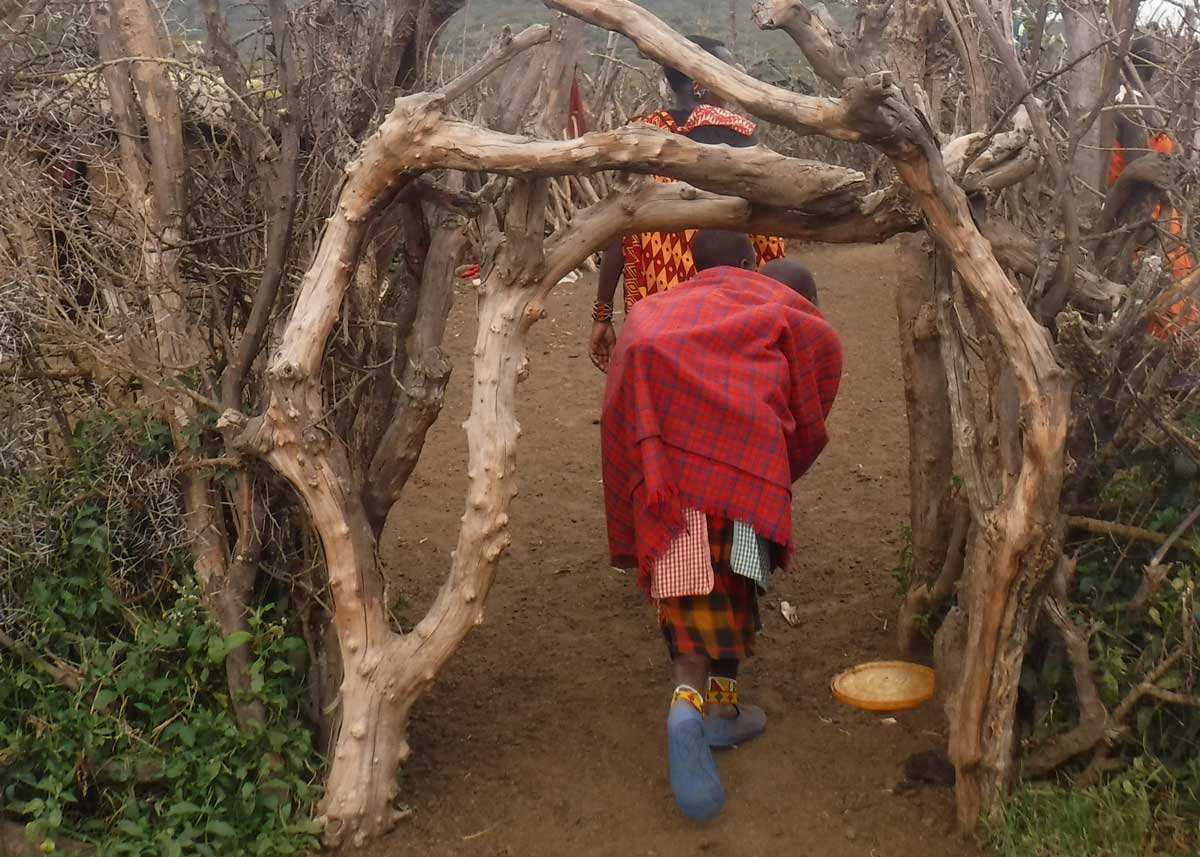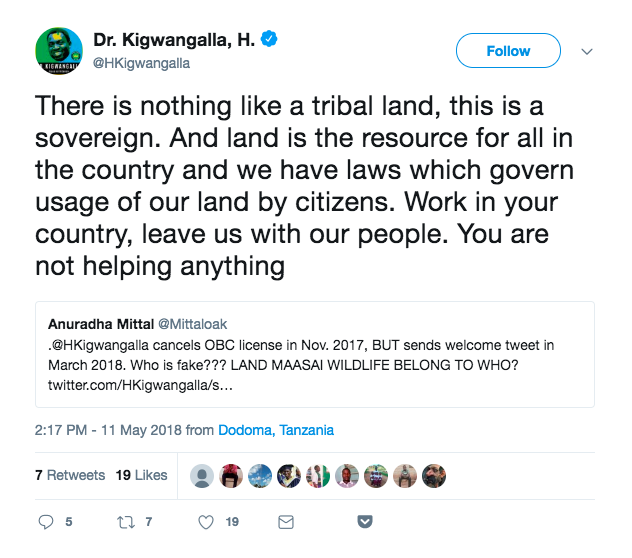This Human Rights Day, Stand Up for the Rights of the Maasai in Tanzania
Today marks the 70th anniversary of the adoption of the Universal Declaration of Human Rights, a watershed document that enshrines a host of basic human rights for all people.
But 70 years on, too many around the world are denied these rights — from communities suffering from famine and indiscriminate bombing in Yemen; to Palestinians living under oppressive occupation; to those in migrant caravans, fleeing violence in Central America only to be greeted with tear gas as they seek asylum in the US.

These basic rights — to life, security, food and housing, freedom from arbitrary arrest, and more — are also being systematically denied to the indigenous Maasai pastoralists in the Loliondo and Ngorongoro regions of northern Tanzania, and the situation is critical.
Repression and Resistance in Tanzania
For decades, the Maasai’s rights and access to land have been continuously eroded — first by colonial forces, then by laws, and most recently by foreign safari companies who are trying to dispossess the Maasai from their land in the name of conservation and tourism.
In the face of this dispossession, the Maasai have resisted. They have staged widespread and creative protests against the creation of a 1,500km2 wildlife corridor on their land for the exclusive use of UAE-based hunting operation, the Ortello Business Corporation (also known as the Otterlo Business Corporation or simply OBC). They have sought recourse through the courts, launching numerous legal cases against both the government and the foreign safari companies. And they recently won an important injunction at the East African Court of Justice (EACJ) that temporarily forbids the Tanzanian government from carrying out evictions, destroying bomas, confiscating cattle, and harassing and intimidating local communities.
But despite this resistance and these victories, repression has continued. In recent weeks, reports have emerged of ongoing violence against the Maasai, including beatings, the burning of enclosures and homesteads, and ongoing harassment and intimidation. This increased repression is particularly egregious in the context of two court cases that are in motion as we speak.
Seeking Recourse through the Courts
The first is a case being heard by the EACJ, focused on the violent evictions of Maasai from their legally registered land that took place in August 2017. Reports from the time suggest that in addition to the numerous arrests and injuries associated with the evictions, 5,800 homes were damaged and 20,000 left homeless. In the 15 months since the case was filed, the Tanzanian government has gone out of its way to derail the court proceedings, intimidate and assault members of the four courageous villages behind the case, and most recently violate the terms of the court’s injunction. With evidence being submitted for the case this month, this violence and intimidation has had a chilling silencing effect on the impacted villages, making the upholding of the injunction crucial for a fair trial.
At the same time, the appeal in a case brought by three Maasai villages against Tanzania Conservation Limited (TCL) — a company owned by the same couple that owns the high-end Boston-based safari outfitter Thomson Safaris — is also being heard. This case revolves around TCLs purchase of a 96-year lease for 12,617 acres of land in Loliondo. As documented in our report, Losing the Serengeti, the Maasai communities allege that since the land was purchased in 2006, they have been denied access to vital grazing areas and watering holes and face intimidation and violence from police, who are sometimes called in by the safari company, which has since established its business on the land. In October 2015, the High Court of Tanzania at Arusha ruled against the Maasai. This appeal is their next chance at justice.
We Must Stand Up for Human Rights in Tanzania
Sadly, while state repression is significant in Loliondo, repression across the whole of Tanzania is also worsening in alarming ways.
In November, a government official announced that a taskforce had been created to identify and punish members of the LGBTQ community, forcing many into hiding. Earlier, the government proclaimed that pregnant teenage girls would be permanently banned from school. And crackdowns on the press have escalated.

In this context, international scrutiny, solidarity, and action against human rights violations in Loliondo and throughout Tanzania is vital. The Danish government recently took an important first step by withholding funds to the government in light of the worsening human rights situation, but more must be done.
In response to the Oakland Institute’s reporting in Tanzania, the country’s Minister of Natural Resources and Tourism, Hamisi Kigwangalla, has repeatedly mentioned sovereignty, suggesting that the abuses taking place in the country do not require or deserve international attention. On this International Human Rights Day, it is essential for both the Tanzanian government and the international community to remember that when a government recklessly violates the rights of its citizens, international scrutiny and action is paramount.
